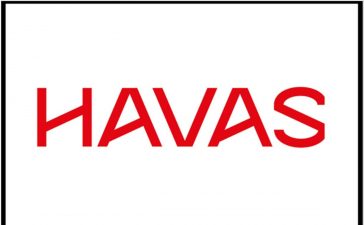Perhaps seeking to grab the limelight from the Department of Justice’s ludicrously articulated antitrust suit against Apple, the European Commission this morning confirmed it will investigate the company, along with Google, Amazon, and Meta, for noncompliance with the Digital Markets Act.
“The Commission suspects that the measures put in place by these gatekeepers fall short of effective compliance of their obligations under the DMA,” the statement says.
In a statement today, Apple said:
“We’re confident our plan complies with the DMA, and we’ll continue to constructively engage with the European Commission as they conduct their investigations. Teams across Apple have created a wide range of new developer capabilities, features, and tools to comply with the regulation.”
Apple has already adjusted some of the initial proposals for compliance. We shall find out if regulators agree those changes go far enough in the next 12 months or so.
What Europe will investigate
Just last week, Margrethe Vestager, Executive Vice President of the European Commission in charge of competition policy, told Reuters: “There are things that we take a keen interest in, for instance, if the new Apple fee structure will de facto not make it in any way attractive to use the benefits of the DMA. That kind of thing is what we will be investigating,” she said.
Europe will look at:
- Apple’s rules on steering in the App Store
- The choice screen for Safari
- Apple’s new fee structure for alternative app stores
- Alphabet’s rules on steering in Google Play
- Alphabet’s self-preferencing on Google Search
- Meta’s Pay or Consent model
- Amazon’s ranking practices on its marketplace
The Commission says it is concerned that Apple’s measures, including the design of the web browser choice screen, may be “preventing users from truly exercising their choice of services within the Apple ecosystem, in contravention of Article 6(3) of the DMA.” It is also concerned Apple has not yet fully complied with its demand that end users should be able to uninstall any software applications on iOS.
Fines could be immense
Europe has the power to fine companies up to 10% of global turnover, rising to 20% in the case of repeated infringement.
The trading bloc can also force a company to be broken up or refrain from introducing other services, the Commission said in a statement.
In other words, any potential fines could eclipse the $1.95 billion Apple has been told to cough up for anticompetitive conduct in the music streaming market.
Things may move fast from here on in, as the Commission says it intends to conclude proceedings within 12 months. Penalties may include huge fines and enforced changes in business practices — including enforced breakup of the company.
You could see it coming
To be honest, you could see this coming.
I watched the recent workshop session Apple presented last week, and at times I felt as if the regulators had only one outcome in mind.
I watched as Apple’s team struggled to gain some recognition for their arguments from what felt like an unfriendly room. Despite the inclement frost, Apple executives argued that its proposals so far should be seen as a v.1, that it has a road map for additional changes, and that it has developed what it has put forward in some collaboration with Europe’s teams.
European Commissioner for Internal Market Thierry Breton confirmed that Apple has been working with the Commission, saying, “We have been in discussions with gatekeepers for months to help them adapt, and we can already see changes happening on the market.”
He doesn’t think changes have gone far enough, however: “But we are not convinced that the solutions by Alphabet, Apple, and Meta respect their obligations for a fairer and more open digital space for European citizens and businesses. Should our investigation conclude that there is lack of full compliance with the DMA, gatekeepers could face heavy fines.”
What Europe said
Vestager, who was seen celebrating the changes Europe has forced on Apple thanks to the DMA on March 7, said in a statement: “We suspect that the suggested solutions put forward by the three companies [Apple, Google, Facebook] do not fully comply with the DMA. We will now investigate the companies’ compliance with the DMA, to ensure open and contestable digital markets in Europe.”
In theory, the DMA aims to open up the digital markets by preventing Big Tech firms from slowing competitive evolution within those markets.
In practice, Apple argues that some proposals will reduce the value of its platforms to consumers and may make them less secure. Europe seems to think consumer insecurity is a price it is prepared to pay for free market theory.
For good or ill, and whether it eventually ends up providing any significant benefit to consumers or not, Europe clearly means to change the tech industry.
Alex Haffner, competition partner at UK law firm Fladgate, said in a statement: “The fact that the Commission has decided already to consider enforcement action demonstrates how seriously it is taking the new regime and also its absolute insistence on taking pre-emptive action to regulate Big Tech rather than waiting for complaints about their behaviour to filter in.”
The flood could become a deluge
Regulators worldwide will be watching all this antitrust activity in Europe and the US with interest.
What Apple and the other players in Big Tech will want to achieve will be to protect as much as they can of their current business models while making changes sufficient to stave off fines or additional penalties.
However, in parts some of the challenges regulators are raising may pose existential problems for these companies. At what point will regulation kill the geese? And what happens to digital economies in the US, UK, and elsewhere once they are extinguished?
Please follow me on Mastodon, or join me in the AppleHolic’s bar & grill and Apple Discussions groups on MeWe.
Copyright © 2024 IDG Communications, Inc.











